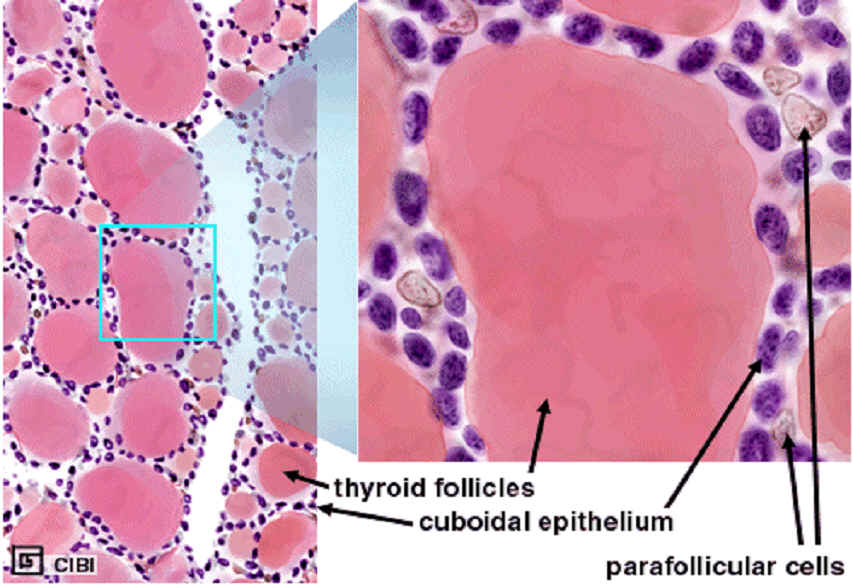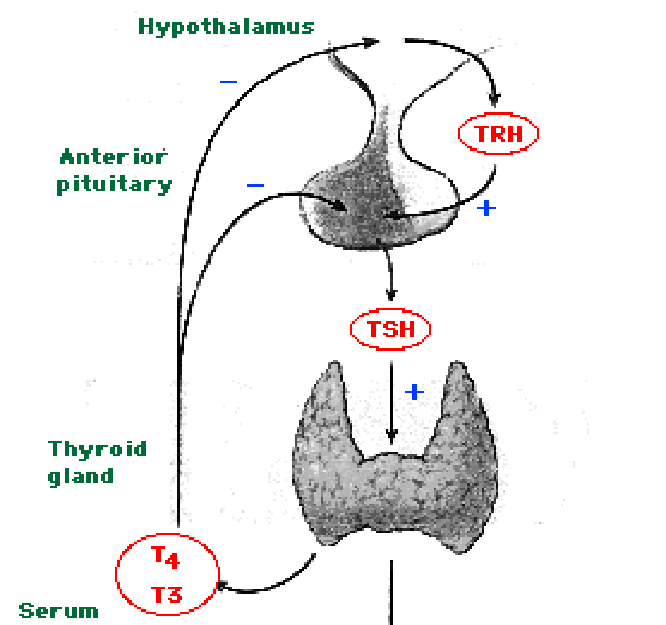

For most people, the thyroid gland is located in the neck just below your Adam's apple. Most of the gland is made up of follicles. A follicle is a group of thyroid cells (cube-shaped epithelial cells) which surrounds a protein material called thyroglobulin. Thyroid hormones are made from thyroglobulin. These follicles are so small that they can only be seen under the microscope:

Next to the cube-shaped thyroid follicular cells are occasional parafollicular cells which play a minor role in regulating the body's calcium levels. Thyroid cancers more commonly arise from the follicular cells then the parafollicular cells.
The job of the thyroid is to make thyroid hormones. There are two types of thyroid hormone made: thyroxine (T4) and triiodothyronine (T3).

Most (94 %) of the hormone secreted by the thyroid is T4. T4 is converted into T3 in most parts of the body where thyroid hormone is active. T3 is 10 times more potent than T4, acts a lot faster than T4 due to a shorter half-life, and is much less likely to be bound to serum proteins that prevent it from being an active hormone.
| T4 | T3 | |
| Potency | 1 | 10 |
| Protein Bound | 10-20x | 1x |
| Half-life | 5-7d | < 24h |
| Thyroid Secretion (amount) | 100 ug/d | 6 ug/d |
| Thyroid Secretion (%) | 94 % | 6 % |
| Thyroid Secretion (ratio) | 14 | 1 |
Thyroid hormones are essential for life and well-being as they are used in virtually every tissue in the body. Thyroid hormones play a major role in the regulation of the body's metabolism. They are also crucial for the normal growth and development of babies and children.
The production and secretion of thyroid hormones from the thyroid is strictly regulated by a part of the brain called the hypothalamus and by the pituitary gland. These two structures are located at the base of the brain just behind your nose and are basically the control centre for all the hormone secreting organs of the body (thyroid, ovaries, testicles, adrenals).

Hypothyroidism is when the thyroid gland does not make enough thyroid hormone.
Hyperthyroidism is when the thyroid gland makes too much thyroid hormone.
Both hypothyroidism and hyperthyroidism are conditions which can cause many symptoms and should be appropriately investigated and treated by your doctor.